Interview With Sarah Freligh

Sarah Freligh! How I admire her writing! And what an honor and a joy to speak with her this past April about her latest book A Brief Natural History of Women and about archetypes, teaching, waiting tables, swimming in cold water, and so much more!
Diane: Sarah, I’ve been dying to interview you forever, but I was too shy to ask because you are like-
Sarah: We’re all friends! We’ve done workshops together!
Diane: I know. But you, to me, are a movie star. I so love your writing.
Sarah: Thank you so much.
I feel like I’m constantly… I want to say reinventing myself, but that’s not it. It’s not a reinvention so much as it’s my writing is moving forward. It’s really exciting to see because I think writers sometimes believe that they get to a point, they’re going to go no further. But no. I mean, Alice Munro had an editor for her whole writing life, and she would speak about how his eyes on her stories made her stories better. And you think, “They couldn’t be better. You’re great.”
And then you realize, we’re here and there’s this mountain we climb, and we never get there.
I realized that in order to live this life, it’s got to be enough to say, “I’m sitting down and I’m going to try to write something that’s going to surprise me.” A sentence, an image. It’s hard to get to the page sometimes. But once you do, there’s nothing better than being face down in the middle of something new or revising something and surprising yourself. To me, that’s the writing life. That’s what’s beautiful about it.
“I Love the Community … It’s Like the Best Party in the World”
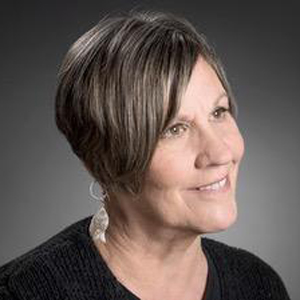 But there’s all this other stuff out there, and it’s so easy to get caught up in that noise and to think that we’re so worthless because, “Oh, nobody’s mentioned me on Twitter for 48 hours. Especially when the stuff comes out like Best Small Fiction, Best of the Net, Wigleaf 50. Just that’s when I stay the freak off. I didn’t know that I was a 50 until a couple days later. Somebody said, “Did you know you’re on this?” And I said no. I said, “I deliberately stay away from it.”
But there’s all this other stuff out there, and it’s so easy to get caught up in that noise and to think that we’re so worthless because, “Oh, nobody’s mentioned me on Twitter for 48 hours. Especially when the stuff comes out like Best Small Fiction, Best of the Net, Wigleaf 50. Just that’s when I stay the freak off. I didn’t know that I was a 50 until a couple days later. Somebody said, “Did you know you’re on this?” And I said no. I said, “I deliberately stay away from it.”
What excites me more than to see my own work up there is to see work that people have started in the workshops.
That we were able to see the first sentences and then you see them out in the world and then winning awards. I feel like a parent. I don’t know what a parent feels like because I don’t have children. I have two cats. But it just feels so good to have a hand in facilitating that, midwifing that in some way. I’m so proud.
I’m glad I started online teaching, that I didn’t just quit after bricks and mortar. I started it in fall of 2019, which was six months before the pandemic hit, and I’ve been doing it ever since. I love the community, the people who show up. It’s like the best party in the world. There has never been a day when I don’t wake up and go, “Oh, what did somebody leave for me? What did they write? What can I read today?” I can’t say the same thing about when I was teaching in college.
“Can’t We Just Give Encouraging Feedback and Maybe a Couple Suggestions of How to Move It Forward and You Could Take It or Leave It?”
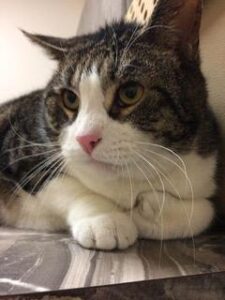 Part of it is grading. It’s like, can’t we do it without grading? Can’t we just give encouraging feedback and maybe a couple suggestions of how to move it forward and you could take it or leave it? I love these online classes.
Part of it is grading. It’s like, can’t we do it without grading? Can’t we just give encouraging feedback and maybe a couple suggestions of how to move it forward and you could take it or leave it? I love these online classes.
But I have to tell you, after this next one that starts on Monday, I’m done for four months.
I have to do my own work. I got to scrub my kitchen floor, for God’s sakes. As a former Northerner, you know. We’re at the time of year where there’s enough light and you look around where you live and you go, “Oh God, this is dirty.” You couldn’t see it before because there just is not enough light in January and February. Then March it’s like, “Oh God.” So, I have to scrub the kitchen floor before Monday, and I’ll feel much better when that’s done. That is my big goal.
And I’m revising a collection of short stories, because I want to resubmit to Moon City Press. I was a runner up in their last contest, 2022. Luckily enough they have another window that closes on May 1st. So I redid some stories, shuffled some out, moved some new ones in.
Most of these are long stories. They’re standard-length stories, anywhere from, oh, 2,500 words to one is like… Oh God, it’s long. 40,000.
“Point of View Is Something That You Spend a Lifetime Learning”
Diane: I didn’t know you wrote longer stories.
Sarah: That’s how I started.
I left journalism… I was a sports reporter at the Philadelphia Inquirer. They went through a big upheaval in the late eighties right after USA Today came out and a lot of the big metropolitan newspapers realized, “Oh, we don’t have to run long stories. We can run short articles and sell the rest of our ad space to advertisers.” And so rather than a 75/25 split between news and advertising, it kind of flipped. It was bad. I didn’t want to write three paragraph articles. I used to travel around the country and write magazine-length articles for a newspaper. That was wonderful.
But I was also kind of done with that. I was in my late thirties. I didn’t want to be the old lady going into the locker room with young boys being, “Now Sonny, tell me how you…”
I enrolled in Temple University’s MA program. They now have an MFA program but at the time it was an MA program. I had absolutely no clips to show them, nothing other than my journalism. I basically went up there and begged my way into the program. I started writing fiction, writing standard-length short stories, learning how to do it. The hardest thing was getting a handle on point of view because writing journalism there is really no point of view except for an objective kind of third person. Point of view is something that you spend a lifetime learning.
“I’ve Been Runner-up for a Lot of Things. It’s Like Being a Bridesmaid”
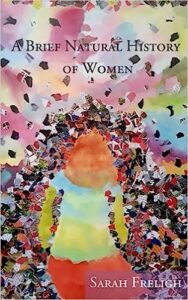 I did that until about 1998 or ‘9, at which time I shifted over to poetry just because of how my life was then. I’ve always juggled poetry and short stories, but around 2013 or 2014 I took a class with Meg Pokrass and got really excited about flash. From there I got really excited about micro. How short can a story be and still be a story? Seeing the links between micro and poetry and the hybridity there. That was exciting for me, but I kind of never left behind standard-length short stories.
I did that until about 1998 or ‘9, at which time I shifted over to poetry just because of how my life was then. I’ve always juggled poetry and short stories, but around 2013 or 2014 I took a class with Meg Pokrass and got really excited about flash. From there I got really excited about micro. How short can a story be and still be a story? Seeing the links between micro and poetry and the hybridity there. That was exciting for me, but I kind of never left behind standard-length short stories.
Diane: Let’s talk about your new collection coming out: A Brief Natural History of Women. I love it! Love the title and how a bunch of the stories are titled “A Brief Natural History of …” How did that all come to be?
Sarah: Oh, I’m the worst person in the history of the world at writing titles. If I had my druthers every poem would be named Untitled. But somebody once said, “Don’t do that.” I don’t usually listen to “do that” or “don’t do that” when it comes to writing, but that was very good advice. In a very short work, a title can shoulder so much stuff–the exposition, it can set our expectations, it can end up as a platform that allows us to step into the subway of stories so that we can just start moving. Same with poetry.
I was kind of flailing around for a title for this one. And I think it was a different title when I entered it into the Split Lip contest last year when it was a runner-up. I’ve been runner-up for a lot of things. It’s like being a bridesmaid.
Diane: But a lovely bridesmaid you are!
“Many of the Stories Are about Women and Various Times and Phases of Their Lives”
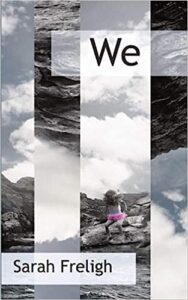 Sarah: You just got to say, “Hey, it was close.” That usually means you’re in the ballpark. And somebody’s going to take it. I sent it back to Harbor Editions, to Alison there who had published We, my little hybrid poetry-micro. And she said, “I want it.” So I said, “Great.” I had a great experience working with them before and I was very happy to do it again.
Sarah: You just got to say, “Hey, it was close.” That usually means you’re in the ballpark. And somebody’s going to take it. I sent it back to Harbor Editions, to Alison there who had published We, my little hybrid poetry-micro. And she said, “I want it.” So I said, “Great.” I had a great experience working with them before and I was very happy to do it again.
Last summer when I was in the SmokeLong workshop, I wrote “A Brief Natural History of the Girls in the Office.” I looked at it and I realized, “Well, that’s kind of what this collection is about.” So many of the stories are about women and various times and phases of their lives. So I went back and I retitled some of the stories with Brief Natural History titles. Some of the newer ones came with those titles like “A Brief Natural History of Law and Order.”
It surprised me because, like I said, I’m the worst person in the history of the world when it comes to titles. It’s just terrible. A friend of mine named Sad Math. We were in a writing retreat trying to come up with titles for our books, and people are shouting things. And she said, “Sad Math.” As soon as she said that I said, “That’s it. That’s what this book is about.”
Diane: I wanted to ask you about that title.
Sarah: The poem always was at the end. It’s like eating Cracker Jack. You have to eat it all to get down to the bottom of the box to get that toy.
By the time the reader gets to that phrase, they’ll see that, “Oh, Sad Math is the book title.” But they’ll have realized long before how it fits thematically for the poem.
“It Was So Compelling, I Sat in the Car and Waited Till It Was Over to Go in and Get My Burrito”
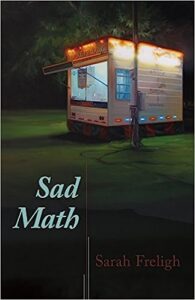 Diane: When you wrote in “Wondrous,” “We know nothing of loss and its sad math,” did you say, “Oh my God, that’s so good?”
Diane: When you wrote in “Wondrous,” “We know nothing of loss and its sad math,” did you say, “Oh my God, that’s so good?”
Sarah: No. That quote’s been around for a while. I scribbled it in a notebook. It’s very meta because I was driving home from work and stopped at this place called Taco John’s to get a giant burrito. They have burritos that are the size of bricks. They’re really good. A giant veggie burrito that you can chop up into four pieces and eat dinner, lunch, dinner, lunch. I was a poor adjunct at the time so I was stretching my dollar. But that was my big Thursday night celebration, because I was done with classes for four days till the next Tuesday. But a report on the radio came on. It was E. B. White’s birthday and they wanted to run this story about him again.
It was so compelling, I sat in the car and waited till it was over to go in and get my burrito. When I went home, I didn’t write the poem but did scribble in a notebook. I still have the notebook up in my closet in a big plastic thing where I keep all my notebooks. It stayed there for probably a year and a half, two years.
“It’s Not My Poem Anymore. It’s Out There”
 I did an informal workshop with another woman, Veronica Kornberg, who’s a really, really great poet and also a great reader of poetry. She created a blog, and we posted work and commented on it. I didn’t have anything one week, so I went back through my notebooks and typed up and revised this poem. She wrote back, “This is really special.” And I said, “What are you talking about?” And she goes, “This is really good.” I didn’t know. I can read other people’s work, but I was kind of clueless about mine. Somehow it hits a chord, I guess.
I did an informal workshop with another woman, Veronica Kornberg, who’s a really, really great poet and also a great reader of poetry. She created a blog, and we posted work and commented on it. I didn’t have anything one week, so I went back through my notebooks and typed up and revised this poem. She wrote back, “This is really special.” And I said, “What are you talking about?” And she goes, “This is really good.” I didn’t know. I can read other people’s work, but I was kind of clueless about mine. Somehow it hits a chord, I guess.
Diane: How’d you feel when Ada Limón picked it for her podcast?
Sarah: Oh, that was cool. It was really wild because right around now in 2019 a poetry friend, Nancy Chen Long was posting poems each day. She posted “Wondrous” and a couple people picked it up, people who had huge, huge Facebook followings at the time. It started getting five, six, 7,000 shares.
People wrote to me. This one woman wrote to me about a baby goat that died. She had tried to keep it alive and couldn’t and felt so terrible about it. She read the poem and it made her feel better. And I said, “Whoa.” I mean, that’s kind of how I felt about Margaret Atwood’s work. You know, “Oh, you changed my life.”
Diane: Do you remember I sent you a poem I wrote about your poem?
Sarah: Yes. You know what? It’s not my poem anymore. It’s out there.
Diane: It’s everybody’s poem but you wrote it. You gave birth to it.
“That’s Sort of an Axiom of Very Short Fiction. Not Stereotype … But Archetype”
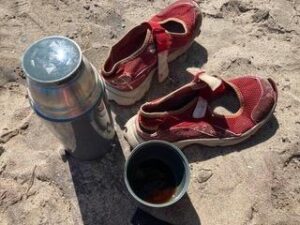 Sarah: It was kind of cool.
Sarah: It was kind of cool.
The Slowdown approached me and said, “We’re starting the Slowdown again.” Because remember, it was Tracy K. Smith, and then they took a long break and came back. But they said, “We want this poem and it’s going to run in the first couple weeks. The host is a surprise.” So, I didn’t know who was going to read it. When they started up again in September of 2021, they announced it was going to be Ada. She reads beautifully. She’s great. Her poetry is wonderful. She’s wonderful. She’s just a great person.
Diane: Let’s talk more about your new flash collection. It’s fiction, but you know these women. Not individually, but you write about a specific type of woman, a forgotten woman who’s not taken very seriously by the world. You want us to meet her and know her on a deeper level.
Sarah: Yes. Well, that’s sort of an axiom of very short fiction. Not stereotype, “This is X, this is Y, this is Z,” but archetype. Because you can’t fill in everything about a character, it’s too short. So you’re relying on the reader to help. You’re giving them enough so they can recognize this character as an archetype. The woman in the office, the woman whose husband takes her for granted. She’s just there to make dinner for him and blah, blah. The woman growing up and confused about sexuality or whatever.
I believe in my reader. I think writing very short fiction is a lot like writing poetry—you’re relying on your reader to bring something to the table. It’s not just, we’re going to sit back and eat popcorn and watch Star Wars. I love Star Wars, but it fills in a lot of gaps for you.
“There’s Something Lovely about Waitressing. You Descend into Chaos and Come out Again”
The people I write about have been forgotten. They’re singular characters, I hope, but they’re also of a type. But there’s a very fine line between stereo- and archetype. I hope I have managed to avoid stereotypes and gone more towards the particularities of the group.
Diane: They are archetypes, and you introduce different facets of them. They’re rich characters.
Have you spent a lot of time in bars in your life?
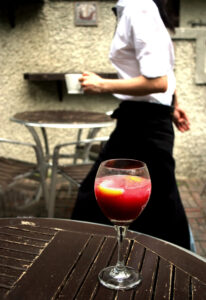 Sarah: Not anymore, I’m too old. But yeah, I mean, what a great place to go observe people. I worked in them too.
Sarah: Not anymore, I’m too old. But yeah, I mean, what a great place to go observe people. I worked in them too.
Diane: You also waitressed?
Sarah: Who didn’t?
It was a part-time job. We could choose the shifts we worked. We could fit it around school or other jobs. You could be absolutely broke, flat broke, go to work, come home with $100 in cash.
What’s better is that you go and everything is all nice and tidy, and then everybody comes in and it’s a mess. And then you clean it up and put it all back together again and you go home. There’s something very nice and shut-door about it, rather than school where you start out a semester and you’re never done until the end. There’s always a paper to grade, there’s always a class to plan. There’s always something to read, a meeting to go to.
There’s something lovely about waitressing. You descend into chaos and come out again. Also, it’s one of the most collegial jobs I’ve ever had. These are people that you might not regularly hang out with or select to be friends, but they’re there for you. We run things out to the dining room for somebody. We pick up a table, we clean up somebody’s table when they can’t do it. And it’s far more collegial than the colleges I taught at.
“In Fiction, the Argument Should Never Drown Out the Nuances of Character and Story”
Diane: Do you see your writing as political?
Sarah: Oh, yeah. But I think that if you are writing the work as political then that it ceases to become a work of fiction. It becomes didactic, a polemic. You might as well hand your characters placards and have them march around. I think the political stuff arises probably from the subject matter and the characters, their conflicts. I mean there’s what, four major conflicts? Man versus man, man versus society, man versus nature, man versus self. I’ll change it to woman. How much conflict has been generated by society with women? Not just in our lifetimes, but throughout history.
If you’re a certain character in a society and you’re writing about those characters that are sort of like you, or not unlike you I should say, there are going to be forces arrayed against them. And that’s where the political comes in. You can’t avoid it. But I don’t want that to be the main thing that people see. I want them to see characters in conflict and this is just a conflict that they happen to be engaged in.
Diane: That’s absolutely what we see.
Sarah: Oh, good, good. Yeah, because we’ve all read stories before where you just realize, “This is an advertisement.” Pro-abortion, anti-abortion, whatever.
It’s like, write an essay. That’s what an essay is for. You have the passion for that, for the argument. But in fiction, the argument should never drown out the nuances of character and story.
“Sweaters Are Novels”
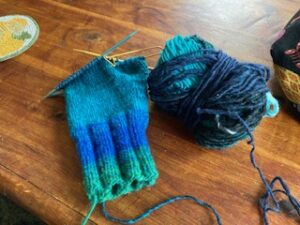 Diane: Absolutely. Let’s talk about knitting. You’re a knitter, right?
Diane: Absolutely. Let’s talk about knitting. You’re a knitter, right?
Sarah: Yeah.
Diane: I used to make really complicated sweaters. And it’s a little like writing because I would do the sleeve and then I was too far in to not keep going, but not far enough to feel like the end was anywhere in sight. And I was like, “Why did I even think this was a good idea?”
Sarah: Sweaters are novels.
Diane: Oh my God. Yes!
Sarah: I knit. It’s my meditation. I also watch sports on TV.
Diane: Oh, I have to ask you about sports. You’re a real cheerleader for your teams.
Sarah: Well, the Buffalo Bills are my team, my football team. It’s just such a pleasure to see a well-played game. I don’t watch much. That was my job for years. I would see a lot of games that were great and a lot of games that were terrible, and I would have to write about all of them. So it’s a luxury for me to not have to watch a bad game, to turn it off.
It gives something to do when I knit. Sometimes I’ll turn the sound off. I can see the score and what’s going on, but I don’t have that constant chatter of the announcers. I try to do a little every morning, just sit on my couch and knit. Sometimes I can only manage 10 or 15 minutes, but it’s enough to kind of smooth me into the day.
Diane: And you swim. In cold water.
Sarah: Yes. Not real cold but pretty cold. I’ll start getting in probably next week, but by next week the water temperature will probably be up to around 55.
Diane: I don’t go outside if the temperature’s 55. I can’t stand the cold.
Sarah: I’m just the opposite. I can’t stand heat. I lived for three years in Florida and the summers nearly killed me.
“I Hope That I’m Able to Serve up Feedback with a Touch of Humor As Well As Being Sincere. I Say What I Truly Believe. When I Say Something Is Working, I’m Not Just Saying That”
 Diane: What lake do you swim in?
Diane: What lake do you swim in?
Sarah: Lake Ontario. It’s six miles away and there’s a public beach. It’s just beautiful.
Diane: It is beautiful.
Sarah, I can’t talk to you without saying how funny you are. You know you’re funny, don’t you?
Sarah: I am funny, yes.
Diane: That’s one of my favorite things about your classes too. Your feedback and some of the things you say are just so funny. But always kind, always kind.
Sarah: I hope that I’m able to serve up feedback with a touch of humor as well as being sincere. I say what I truly believe. When I say something is working, I’m not just saying that.
Diane: Your feedback is golden. It’s wonderful.
Sarah: I’ve taken a lot of online classes. Probably if somebody’s teaching it, I’ve taken it. It may work for some people to hear, “Oh, this is wonderful. Everything is wonderful,” blah, blah, blah. But it doesn’t serve me as a writer very well. And to me it’s like you’re abdicating your job as a fellow writer, as an educator, if you’re not sincere.
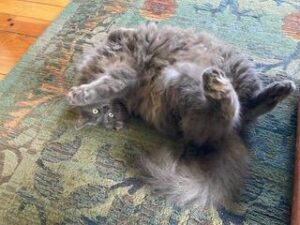 I don’t want somebody just to gush and say, “This is so wonderful,” when it’s not.
I don’t want somebody just to gush and say, “This is so wonderful,” when it’s not.
And I don’t learn when somebody just tells me everything that’s wrong with it.
Diane: It has to be balanced.
Sarah: Yeah. It takes time. I read everything a couple times before I even start to write feedback. And I read them aloud. I read them to my cat Stewie, who’s usually sitting on my bed.
Diane: I bet he’s great company.
Is there anything you wanted to talk about that we didn’t talk about?
Sarah: We talked about everything, haven’t we?
Diane: Everything. And what a great pleasure it was! Thank you!
As always, I’d love to hear from you. Please write a comment or send me an email.
See you soon!
XOXOXO
Diane

For one-on-one support in uncovering your voice on the page, please consider working with me! I’d love to join you on your journey!



Another awesome interview! Diane I laughed out loud at “I don’t go *outside* if the temperature’s 55.” You know that I’m team Sarah on this one—bring on the cold!! Sarah, thank you for this: “…there’s nothing better than being face down in the middle of something new or revising something and surprising yourself.” Sometimes I forget why I love/need/crave writing and then I hear another writer describe the glory of it and I remember. Then I feel deeply connected and understood. Writers are my people and I am so grateful for them all. Thank you both for cultivating community for women and writers!
Thank you, Sherry! You may love the cold but you are warm-hearted!!! Love being connected with you!
What a great conversation! I am so crazy about Sarah’s poems and have twice sent them out as Poems of the Week and featured them on my blog – “Wondrous” and “Old Flame” are my favorites. And I so agree about workshops in general and specifically grading…I’ve always refused to grade anyone’s creative work. Feedback yes, grades no. I loved this wide-ranging conversation. XO
Oh, thanks, Alison! I remember you featuring Sarah’s poems as Poems of the Week! And I knew you would agree with the workshops and grading stuff! Your classes are always soooooooo wonderful and such rich writing and learning experiences! Love them!!! XOXOXO
Such a delight to read this!
Thanks, DeAnna! Speaking with Sarah was the delight!
Love this interview with two of my favourite American flash writers and people in this community!
Thanks so much, dear Kathryn! Such a compliment from a flash master across the pond!
Wonderful interview. Diane! I felt like we were all chatting at the kitchen table. 🙂
Thanks so much, Charlotte! That’s exactly how it felt!!
Great interview, Diane.
So many of Sarah’s books I want to read! Thank you!
Thank you, Stephanie! I love all of Sarah’s writing. This new book is a beauty!!
Oh< I loved this interview and now I want to take one of those funny but kind classes but first I have to scrub my kitchen floor.
Thank you Eileen! You made me laugh! And your kitchen floor can wait–lol!